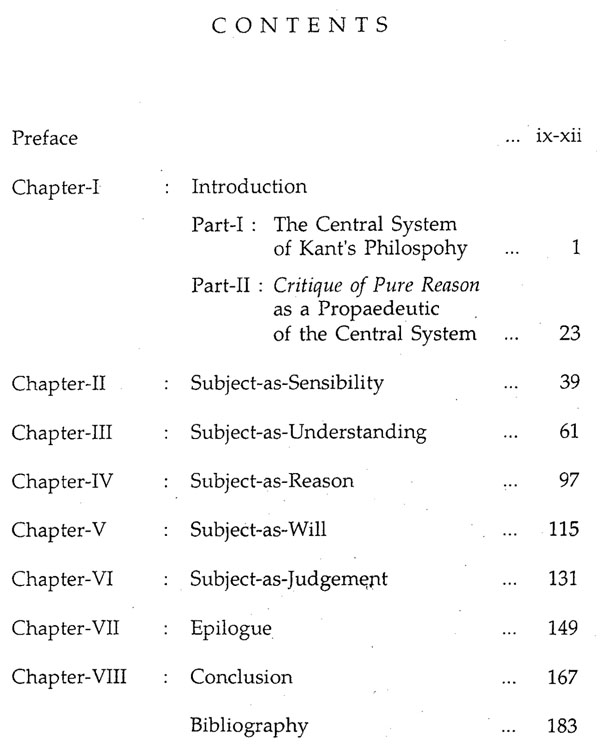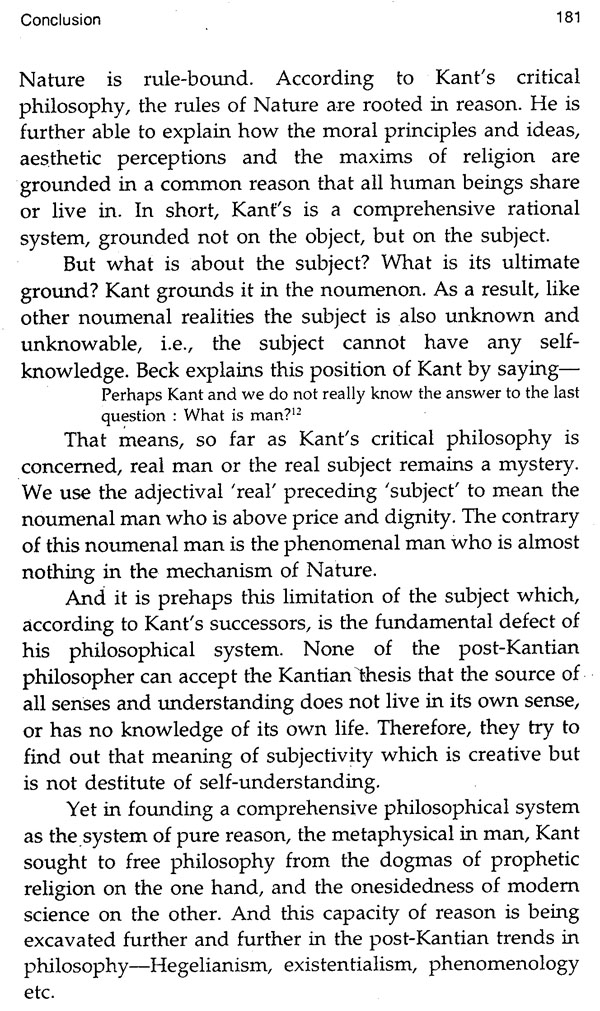
Kant On The Human Subject
Book Specification
| Item Code: | NAX505 |
| Author: | Sunil Roy |
| Publisher: | The University of Burdwan |
| Language: | English |
| Edition: | 2010 |
| ISBN: | 8187259736 |
| Pages: | 187 |
| Cover: | HARDCOVER |
| Other Details | 9.00 X 5.50 inch |
| Weight | 320 gm |
Book Description
With the exception of Hegel, and possibly also Marx, Kant is the last great system-builder in philosophy. A system, as Kant understands it, is the unity of the manifold modes of knowledge under one idea. But what is that idea? In the first part of the first chapter of this work we have explained that idea. We find that Kant conceives of philosophy as the system of pure reason that is the source of the a-priori. The pure reason that serves as the base of Kant's philosophy is the same as human subjectivity. This subject, though human, is not empirical. The empirical subject is the empirical mind that differs from man to man. But the transcendental subject, functions in the same way in all human beings. It functions both as passive receptivity or sensibility and as spontaneity-both of them being the sources of two different types of the a-priori. By virtue of its sensibility it is specially human subjectivity or human reason. Man's worldly life is grounded in his transcendental subjectivity. Man is a sensible creature. He is born for knowledge and understanding. He is born for actions. He is capable of aesthetic perceptions. And, above all, he has hopes. All these different aspects of man's life on earth are grounded in his transcendental subjectivity. Thus by working out a system of pure reason Kant wants to find a rational comprehension of the human reality.
In spite of all these difficulties, there is also an advantage. According to his own admission, and also by general consent, Kant's philosophical works constitute a system. "By a system", as Kant says, "I understand the unity of the manifold modes of knowledge under one idea."1 Thus if we can discover the central idea or the central organisation of Kant's philosophy we may rather find an easier approach to the comprehension of his philosophical thoughts even in those places where they appear to be baffling. Let us, therefore, try to see what may be regarded as the central idea of Kant's philosophical works.
A system, of whatever character it may be, is built upon a foundation or a base. A philosophical system, as Descartes once explained, is 'like a tree, whose roots are metaphysics, whose trunk is physics and whose branches, which issue from this trunk, are all the other sciences'.2 That means, philosophy is a system of the sciences, built on a foundation of metaphysics. Metaphysics, in the traditional sense, is the search for the ultimate ground that may explain everything. The ultimate transcends the spatial and the temporal and is absolute, universal, necessary and final-a self-existent unity or totality, or what Kant calls the unconditioned. Our sciences flourish in differerent directions and they give us only partial, conflicting or only conditionally necessary explanations and goals. But constituted as we are, our reason is not wholly satisfied with the partial and the conditioned; it longs for the complete and ultimate answer. Philosophers so long responded to reason's natural demands by conjuring up a picture of the absolutely final and by connecting all the sciences to this central conception of the metaphysical absolute.
Book's Contents and Sample Pages










